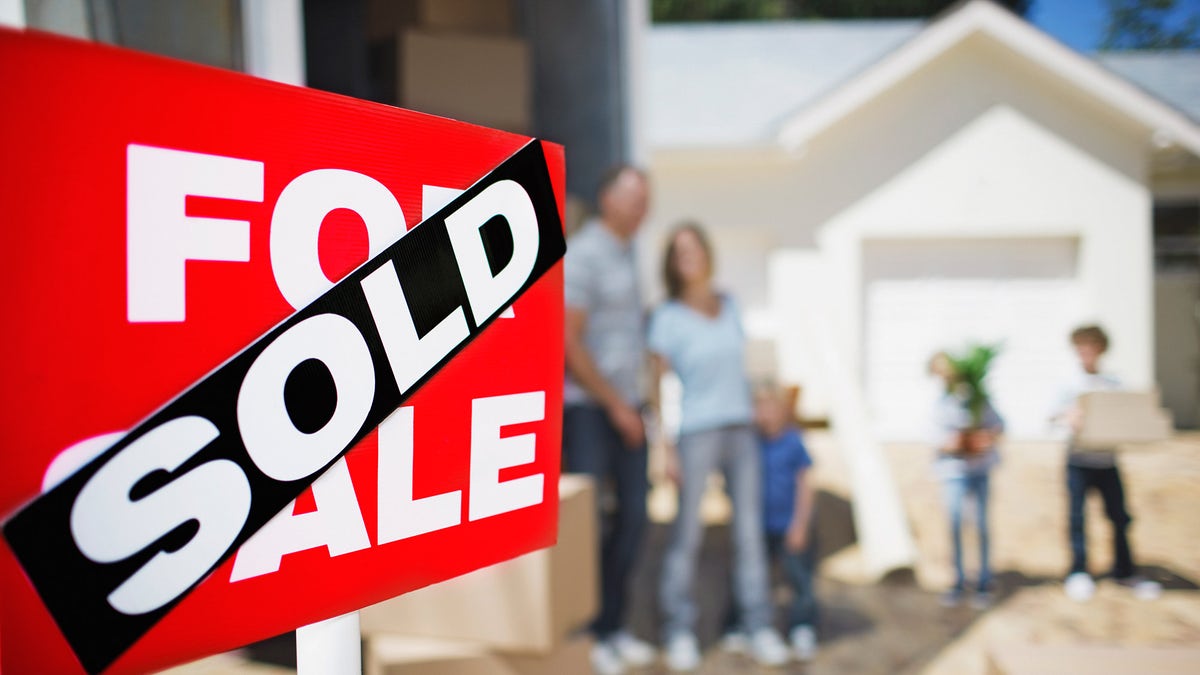
family-for-sale-sold
If you're among the millions of Americans who lost their house when the real estate bubble exploded in 2006, you likely have painful memories of giving up your family home to foreclosure or short sale.
Since then, the housing market has bounced back and so has the economy. You may even be considering homeownership again.
And you wouldn't be alone. A recent study by TransUnion found that some 700,000 "boomerang buyers" could re-enter the housing market this year, and more than 2 million of them may be buying houses over the next five years.
"If you're thinking about re-engaging as a homeowner, even if you had problems in the past, the current environment is a good one for buyers," says Danny Gardner, vice president of affordable lending and access to credit at Freddie Mac. "But it's critical to ensure that your situation has stabilized and you're prepared to take on that responsibility again."
If you're a boomerang buyer, follow these steps:
Be ready to wait (some more)
Your ability to gain approval for a mortgage again depends on how and when you lost your home. For a conventional loan, you'll need to wait four years after a short sale and seven years after a foreclosure in order for a lender to consider your loan application.
That said, you may be able to get a loan sooner if you opt for a Federal Housing Administration loan or can get a VA loan, and have good credit other than missing payments on your house.
Explain your circumstances
Some lenders will also make an exception to the rule of waiting four to seven years if you can show that the foreclosure wasn't due to negligence on your part, but to circumstances beyond your control. For example, the most common ones are that you lost your job or had a major health problem that drained your savings or prevented you from earning income. As long as these circumstances are no longer a major factor in your finances, creditors may play ball.
Do everything you can to boost your credit profile
If you're still waiting for eligibility, put the time to good use and focus on improving your credit score. While a decent credit score is important for all home buyers, if you're re-entering the market with a foreclosure in your past, it's downright crucial to show you've mended your ways, so you can score the best possible rate on a loan.
"Always pay your bills on time and work on getting your outstanding debt paid down," says Crissinda Ponder, a mortgage analyst for Bankrate. This won't only improve your chances of getting a loan, it will also lessen the amount you'll pay. According to FICO, a consumer with a credit score below 700 would pay more than $16,000 over the life of a 30-year, $200,000 home loan than a buyer with a credit score of 760 or higher. In addition to having the best possible credit score, you'll need to have a few years of steady income and a low debt-to-income ratio for loan approval.
Start saving for a down payment
Not long ago you may have been able to get your last mortgage with little or no cash as a down payment, but times have changed. While you may be able to get an FHA loan for as little as 3.5% down, most lenders require at least a 20% down payment for the best rates. According to RealtyTrac, the average down payment for a home in the first quarter of this year was 15%. Deal with it.
Be prepared for more red tape
You'll need to get pre-approved for a mortgage before most real estate agents will work with you, and certainly before sellers will entertain your offer.
You'll also need documentation that proves your income, assets, and debts.
"Before the crisis there was lax documentation," says Kevin Leibowitz, president of mortgage broker Grayton Mortgage. "Now there's an inordinate amount of documentation."